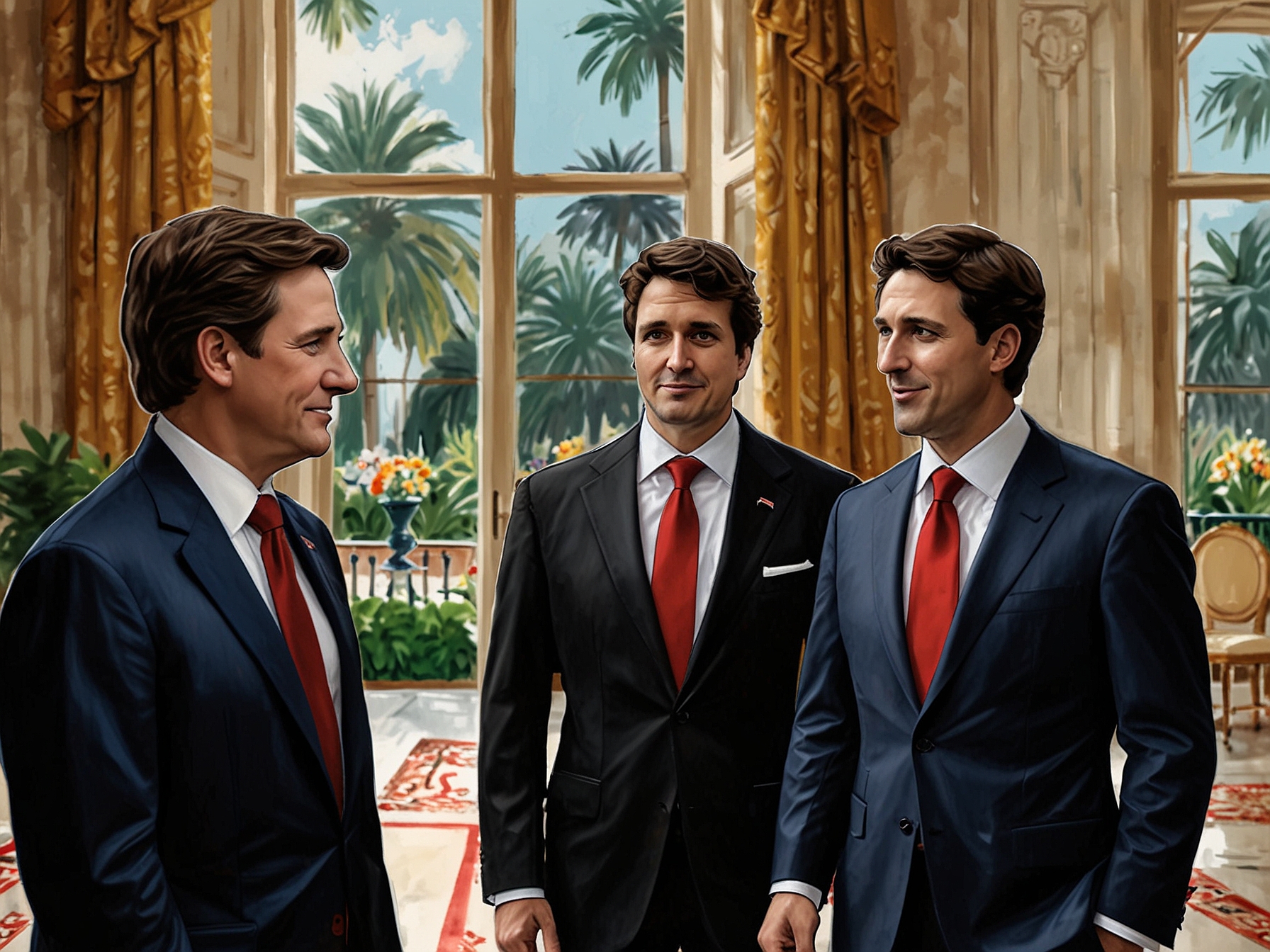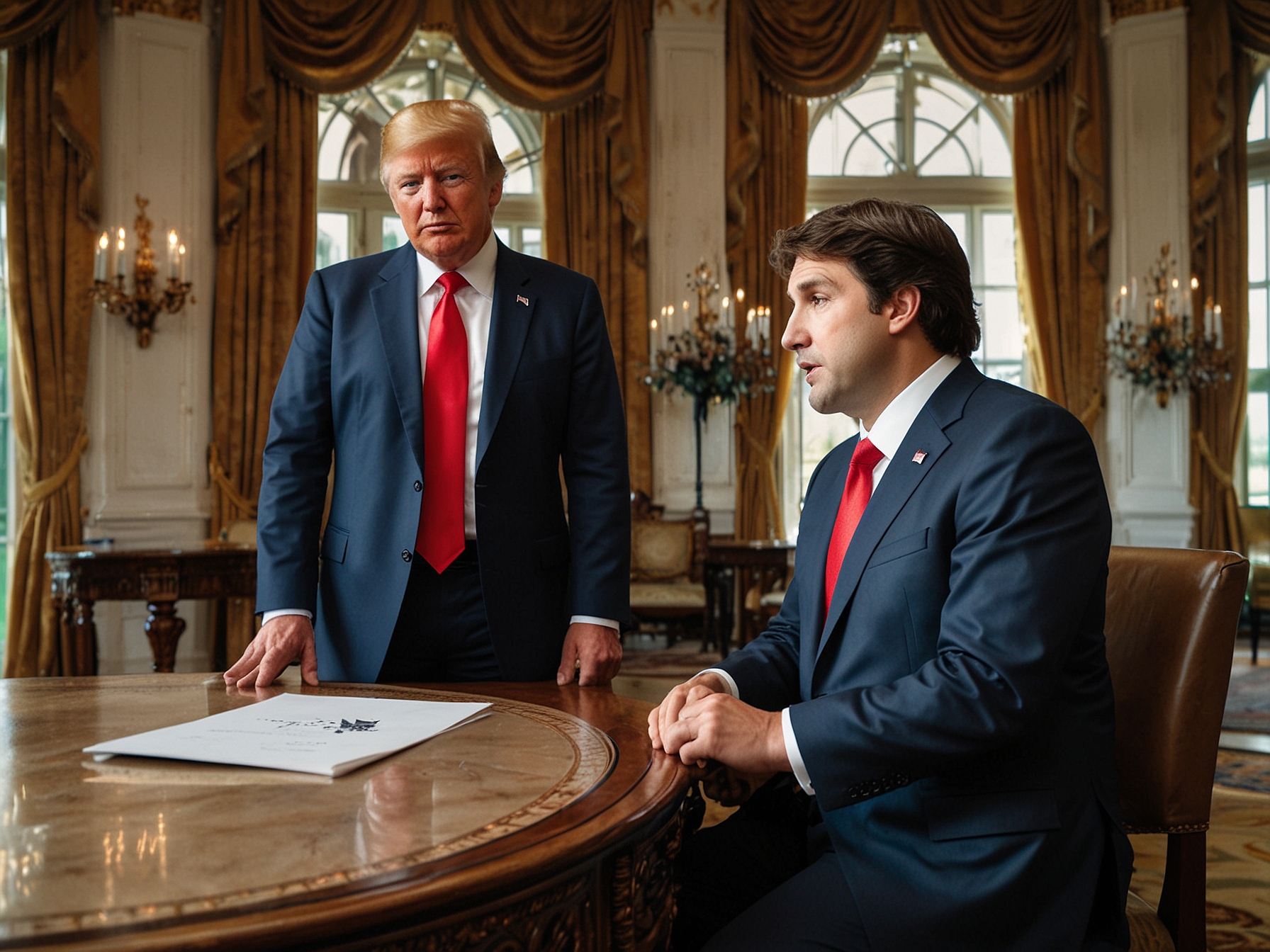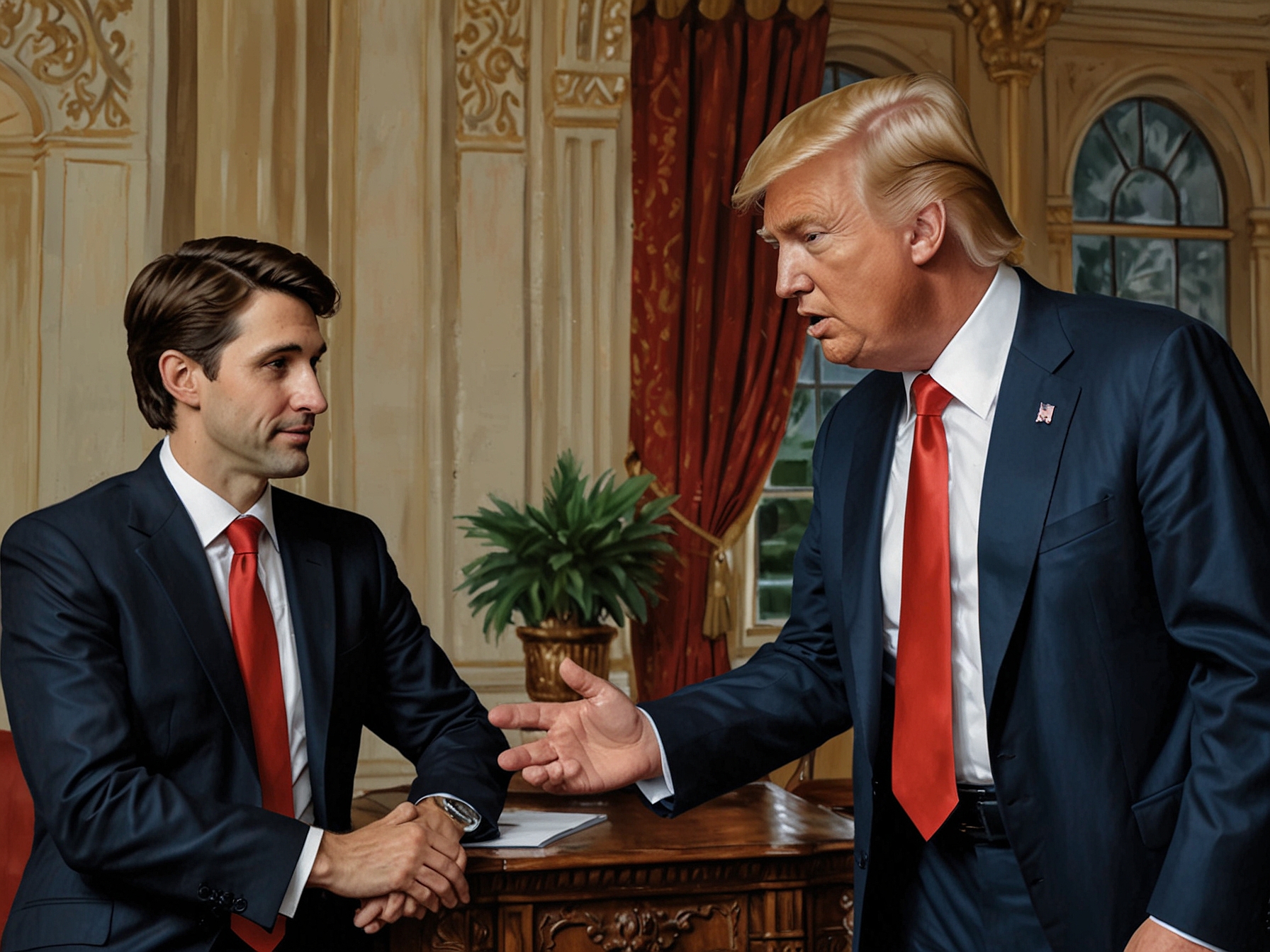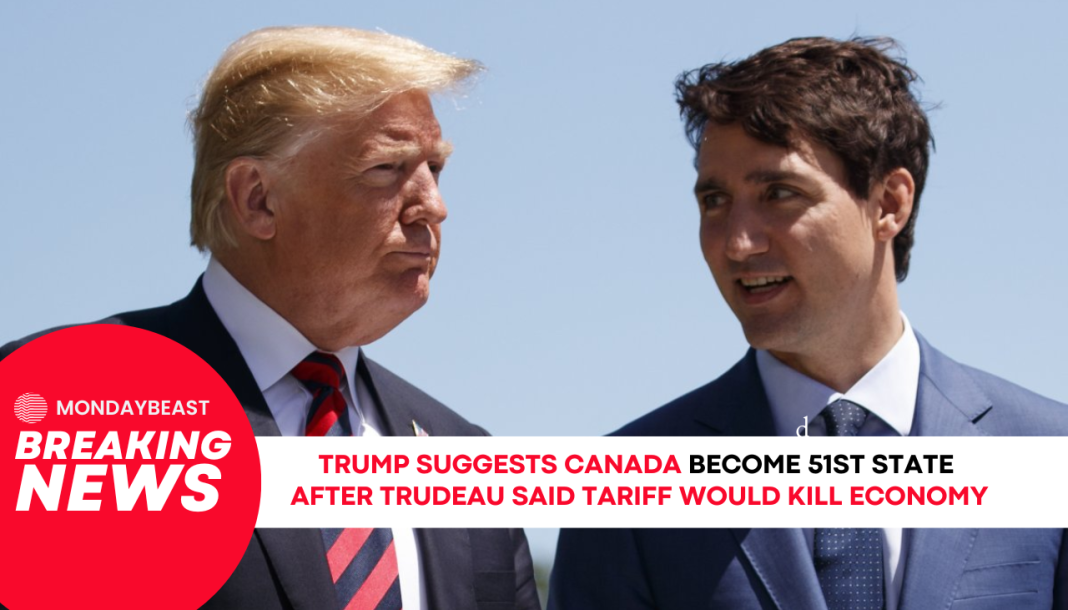In a surprising twist, Donald Trump suggested Canada could become the 51st state. This remark came during a tense meeting with Canadian Prime Minister Justin Trudeau. Trump’s comments followed his threats to impose hefty tariffs on Canadian goods.

Trudeau’s visit was unplanned and carried great weight. He arrived at Mar-a-Lago after Trump threatened tariffs that could cripple Canada’s economy. It highlighted the pressing issues of trade and border security.
Trump, warm at first, quickly became direct and pointed. He outlined his demands to Trudeau. The discussion grew animated as Trump raised concerns about rising drug trafficking and immigration via Canada.

The president-elect voiced his worries about a staggering trade deficit. He claimed Canada owes the U.S. over $100 billion. Facing this, he threatened to impose a 25% tariff immediately upon his return to office.
Trudeau responded cautiously. He argued tariffs would have devastating effects on Canada’s economy. Trump’s retort questioned whether Canada could thrive without taking from U.S. trade.

Then came the surprising suggestion: statehood for Canada. Trump’s humor attempted to diffuse the tension. He suggested that Trudeau could still hold a title—not as a prime minister, but as governor.
The room erupted in laughter at the idea. Still, beneath the jest was a serious expectation for change. Trump hinted at a deadline of January 20 for actionable solutions.
With these negotiations, the stakes are incredibly high. Trump’s remarks raise questions about U.S.-Canada relations. Each nation’s economy and future must be considered carefully.
How do you feel about Trump’s proposal? Could Canada really benefit from statehood? These are critical questions as discussions unfold.
The tension at Mar-a-Lago reveals much about trade. Can humor bridge such serious economic divides? Or will concerns about tariffs become a growing rift?




